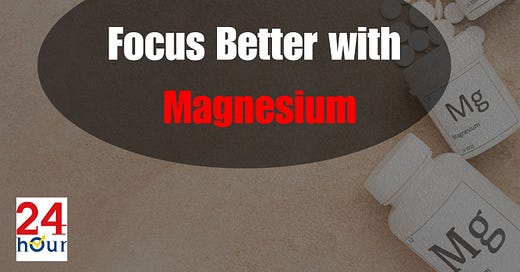Is Working from Home Affecting Your Mood and Sleep?
Magnesium supplementation can offer a range of potential benefits, but it's crucial to choose the right type to target your specific needs.
Highlights
How magnesium helps reduce stress and improve sleep, mood, and energy.
Different forms of magnesium and their specific benefits.
Advice on choosing the right supplement and dosage for your needs.
Feeling unusually fatigued, irritable, unable to sleep, or unable to focus? There are a tremendous number of reasons why ever higher numbers of us feel…
Keep reading with a 7-day free trial
Subscribe to 24Hour Journal to keep reading this post and get 7 days of free access to the full post archives.





